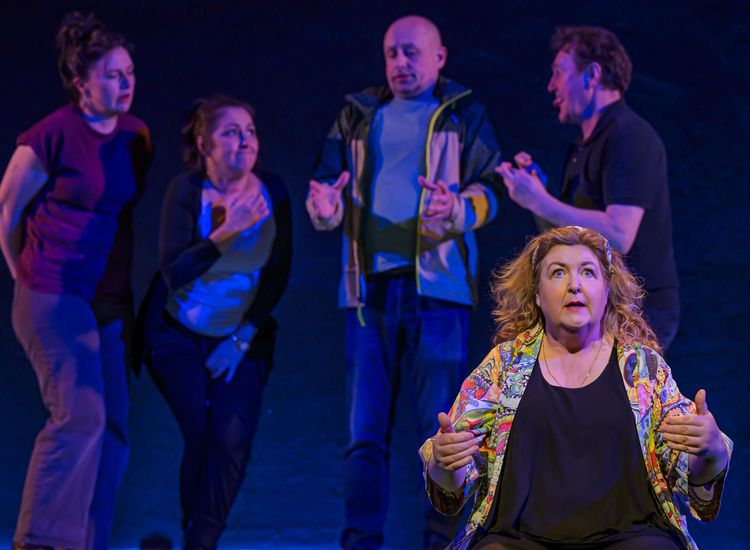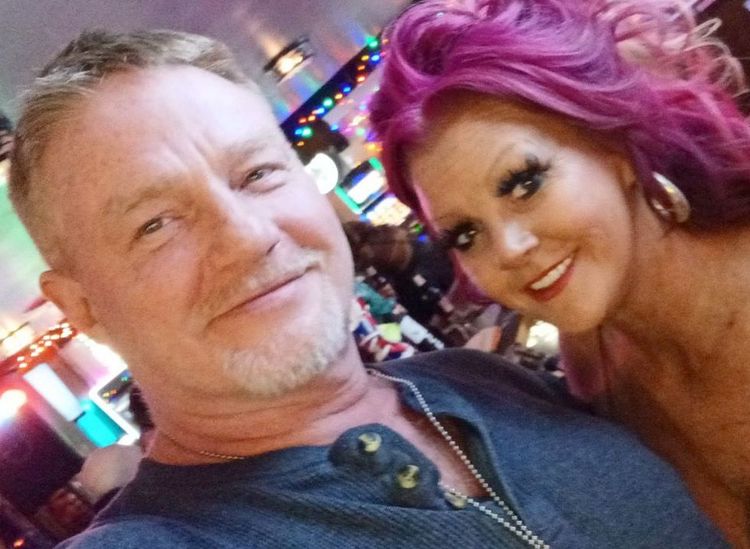Roxborough, Manchester. JAMAICA TOURIST BOARD
By James Rodgers
Strange place. Pounding ska music. Ska, ska, ska. Brown faces dancing, smiling. Whiskey and beer. Warm body wedged up against him. Soft curves and grinding movement. Pearly white teeth with a flash of gold. Yeh, mon. Yeh, mon. Dat's all right. Look at white boy dance, mon. Look at dat! She says her name is Mary. Good Mary or bad Mary? Warm and soft and brown. Pressed up against him. Sam. I said Sam is my name. I say, it's Sam! Yes, Sam. My father's name. His father's name. Oh, Mary, you are spinning. Hold me tight. Lost my bearings in the Red Stripe. Warm and soft and brown. Love me, Mary. Love me more. Take you home, Mary? Do you have a home? I love you too, woman. Red hair? That's my father’s hair, Mary. And his father's hair. And his father's father's hair. Yes, Highlands, like here. Yes, the sea, like here. Lochs and heather. Hither over yonder to the heather while I ponder. How's that for a Highlander, eh Mary? Love me. More...more...
The steps are rickety, Mary. Statue of Jesus. Mary, I don't know if I can do this with Jesus looking on. Warm and soft and brown, she is. Whispers of love. Room spinning again! Hold me. Mary. Oh, pleasant as a warm wave of salt water. Rolling, rolling in the surf of the southern sea. Nakedness becoming freedom. Just you and me, Mary. And Jesus. Watching. There's love here. Believe it. It can be, Mary. Warm and brown and soft... warm sea rolling, washing us. Over and over ...and over... and over. Into sleep.
Sam Brown was a sailor. That was true. He woke up in a strange bed in Montego Bay. He heard a rooster crowing. A bed spring had escaped the bed and was piercing his back. The woman turned toward him and looked at him with brown sleepy eyes. Sam remembered where he was. He yearned for coffee. He swung his legs over the bed and grabbed his clothes. The brown-eyed woman watched him and said nothing. He lit up a cigarette, inhaling deeply—thankful for the kick start. At the basin he rinsed his face and looked in the mirror. The brown eyes watched him, still sleepy. Sam put on his shoes and said goodbye. The woman's dark face gave out a brief smile. The sun slipped through a crack in the wooden blind, and for a moment gleamed brightly on her gold tooth. Then the woman's smile disappeared and her sleepy eyes said goodbye to Sam as he left the room. He walked through other rooms past beds, each with a sailor and brown-eyed woman in various positions of sleep. Sam was quiet. He didn't want to wake the men.
Sam walked down rickety stairs and emerged onto an empty street drenched in early morning sunlight. No taxis were in sight. He walked down the hill at a good pace toward the harbor. A few early morning faces peered at Sam from doorways. He was not inconspicuous; a white man in khakis and a starched shirt stood out at seven o'clock in the morning in this part of town. Sam found a corner restaurant just opening. He asked the man for strong coffee with steamed milk. The light brown liquid steamed through his body, opening up valves, bringing nerves on line for another day of efforts and punctuating the morning's beginning. The man smiled as Sam drank the Blue Mountain coffee. Sam smiled back at the man with the dreadlocks and lit up his second cigarette of the day. Sam didn't need to explain himself in this part of town—Sam in his khakis and starched shirt. The man with the dreadlocks had driven the taxi which had brought Sam and the brown-eyed girl to the wooden row house up on the hill, where Sam had spent the night. Sam took a last drag of his cigarette, exhaled and finished his coffee. He nodded to the man, paid for the coffee and walked back out onto the narrow street, continuing his walk toward the harbor.

Author James Rodgers. PHOTO BY OONA RODGERS
At the harbor Sam approached a sleepy youth lounging on the deck of his watertaxi. He gave Sam a knowing smile.
"Yeah, I know, sailor-man having a bit of fun with girl. Paying for it in the morning," Sam said.
The youth broadened his smile and said: "Go to ship, mon?"
"Aye. The ship it will be. We're leaving today, lad. All the fun is over. You'll have to go back to school now."
"No school for me, mon. I fisherman now."
"Finish school, lad. Then leave the island."
"Never, mon. My honey, my music, all here. And here, I am a man. Out there nothing but cabbie."
"You are a cabbie."
"A sailor and fisherman, mon. You know difference."
"True. I know the difference," Sam replied. He stepped into the water taxi and the youth steered the wooden launch away from the pier and toward the ship anchored in the harbor.
The ship sat at anchor, fat with Blue Mountain coffee beans bound for Europe.
Six hundred feet of heart and soul, clothed in rust and sounding like a wailing banshee when the seas rolled the ship around like discarded flotsam. The ship was due for an overhaul or perhaps a scrapping—its steel better serving mankind by shaving stubble off countless faces in the early hours of the morning. Either way, Sam would miss her, the old lady of the sea, taking on questionable cargo for questionable shipowners, anything to delay the inevitable day when no owner would want her—for any reason. Fully loaded she sat low in the water, looking tired and sluggish after two days of giving up her holds to the nameless and faceless cargo taking up her trade. The old gal plied her trade without complaint, relieving the Caribbean of its raw materials—its natural bounty—and supplying the demands of the unrelenting needs of the western world. White smoke drifted out of the stack and Sam knew that the ship's engineer had awoken early and put both boilers on line. The steam would be easing into the turbine, ever so slowly and gently, so as not to crack a turbine blade or shock the old machinery creaking painfully to life. The shaft leading to the ship's screw would be engaged later—another slow and tenuous awakening, one that was essential if the old ship was to proceed out of port.
The wooden launch pulled up alongside the ship's ladder. Sam slapped a ten in the youth's hand and waved him goodbye, "So long, young sailor. I won't be back on the next haul. Keep your bilges dry and bow into the sea."
The youth laughed his soft Jamaican laugh, "Sure, mon. But you be back. I know dees tings. Even if dey scrap de ole girl, you find another. No goodbye. Next time meet my cousin, okay, mon? She a lady dat'Il bring you back. Dat's for sure, mon, dat's for sure."
The launch puttered away—its bleached wood and peeling paint as natural as the sun rising over the green hills of Jamaica.
The Captain arrived forty minutes after Sam. Sam was high up on the bridge wing and could see the Captain was in no condition to get the ship underway. Sam would issue the orders to weigh anchor and bring the bow of the ship to a position facing seaward, and then order the engines ahead, proceeding slowly out of the harbor. The Captain would sleep it off and wake up at sea. The crew—those sailors that Sam stepped over on his way out of the row house—were now arriving by water taxi. Unlike the Captain, the crew could not sleep it off. Sam chuckled at the thought of the ship's departure—a ghost ship indeed, with sailors going about their duties tight-lipped and trying not to barf the last evening's festivities in front of their shipmates. Saltine crackers—the sea dog's remedy for seasickness—would do them no good against the whiskey and Red Stripe consumed the night before. Limited time in port, a sailor's salvation. Few could keep the pace for forty-eight hours.
Sam walked onto the bridge of the ship and nodded to the helmsman. The engineering officer rang up from the engine room and reported that the steam was up and the turbine warm, ready to proceed. Sam walked out to the bridge wing and faced the bow, where the boatswain waited on the forecastle. Sam cupped his hands and yelled: "Weigh anchor!" The winch slowly turned, pulling the heavy chain and anchor off the harbor bottom and onto the forecastle. Sam walked to the bridge and five minutes later he ordered the engine room to put steam to the turbine. He ordered the helmsman to bring the rudder over: "Right ten degrees!" The ship, fully laden with the bounty of the Caribbean, swung its bow over and steamed out to sea.
Sam stood out on the bridge wing. The warm breeze smothered him in its lightness. He looked starboard and saw the green hills disappearing. Did the people of Edinburgh and London know what lengths were taken to bring home the Blue Mountain beans, he wondered. Smoothness and aroma. They could tell the difference. Could they? They could. They knew it was the best. Only the best for the urbane people of the metropolis. It had to be the best. They did not dabble in not the best. No way did they dabble in things not proclaimed to be the best. Necessitated sailing to Jamaica to get the best. Yes, it did. Sam felt the ship's boilers and the turbine straining. Old gal had to make it to Glasgow. The bow crushed into the sea and the shell plates withstood the force. The owner had skipped the last inspection. Got an extension for this one trip to Glasgow. Old gal could make it, Captain had said. Lloyd's of London would understand. Underwriting risk was the thing; made for interesting talk at the club.

Ocho Rios Bay Beach, also referred to as “Turtle Beach.” JAMAICA TOURIST BOARD
On the third hour of his watch, the seas kicked up. They did. Sam felt a shudder, then another. Then no more. Just a rogue wave, all it was. The Nautical Almanac assured the mariners that hurricane season was afar. This was just a storm that would pass. Barometer falling faster than rain. Another shudder. Then another. Brown-eyed woman made Sam smile. What was her name, he knew her for such a short while. Warm and brown and soft. Her name was Mary. He remembered. Why should he not? She was pretty. She had wrapped him in herself and her warmth had rolled over him like a warm sea. He felt another shudder. Port bow it seemed. Shell plates holding. Bow pitching forward into the seas and struggling back up, then pitching forward again. Then struggling back up. Pitch and roll. Pitch and roll. Another shudder. This time on the starboard bow. Jesus had watched them. A statue anyway. Love was there in some form, or another. Safe and warm, like the sea rolling over him, washing him. He felt another shudder. Then another. Then another.
The engine room rang up. Flooding in the forward hold! Captain now on the bridge. Report! Shell plates gone, port and starboard. Water in hold, wetting the coffee, turning it to cement. Abandon ship! Nothing to abandon. Ship disappearing into the waves. Sam thinks of Mary and smiles. Warm and brown and soft. There was love last night. He had felt it as she had wrapped her brown legs around him. A safe harbor for him, Sam the sailor. Rolling, rolling in the love of Mary. Warm and pleasant, washing him... washing away his sins. In the morning, her brown sleepy eyes had said goodbye.
The ship slid bow first. Warm, salty water washed over Sam and he smiled. Like Mary, over and over and over. Jesus watching. He knew. Safe harbor was Mary. Safe harbor, the sea. The warm and salty water of the sea. Washing over him, cleansing him. Loving him. He was home. The home he'd searched for when he'd left the Highlands. A safe harbor from the tentacles of his people—grabbing, wanting, demanding, preaching, repressing. No home at all. A place to run from. Run away to sea. Never to come back. Warm and salty water now covering him as he sinks. Wrapping its love around him. Like Mary. He heard the ska sending him off. Things were cloudy. He couldn't breathe. Water rushed into his lungs. Pain—then nothing. Cloudy vision amongst the rising bubbles. Feeling sleepy. Hold on to vision of Mary. Listen for the ska. More, more, just a little more, Jesus. Then please take me back, Jesus. Take me back to the green hills of Jamaica. Where Mary is and they play the ska. I have found my home. I have.
© 2020 James Rodgers
James Rodgers practices maritime law and lives with his wife and two children in Manhattan. He is the author of the recently-published novel “Long Night’s End,” extracts of which have appeared in the Irish Echo. He has read his fiction, including“Green Hills of Jamaica,” at the Irish-American Writers and Artists Salon and at the Artists Without Walls’ Showcase.











